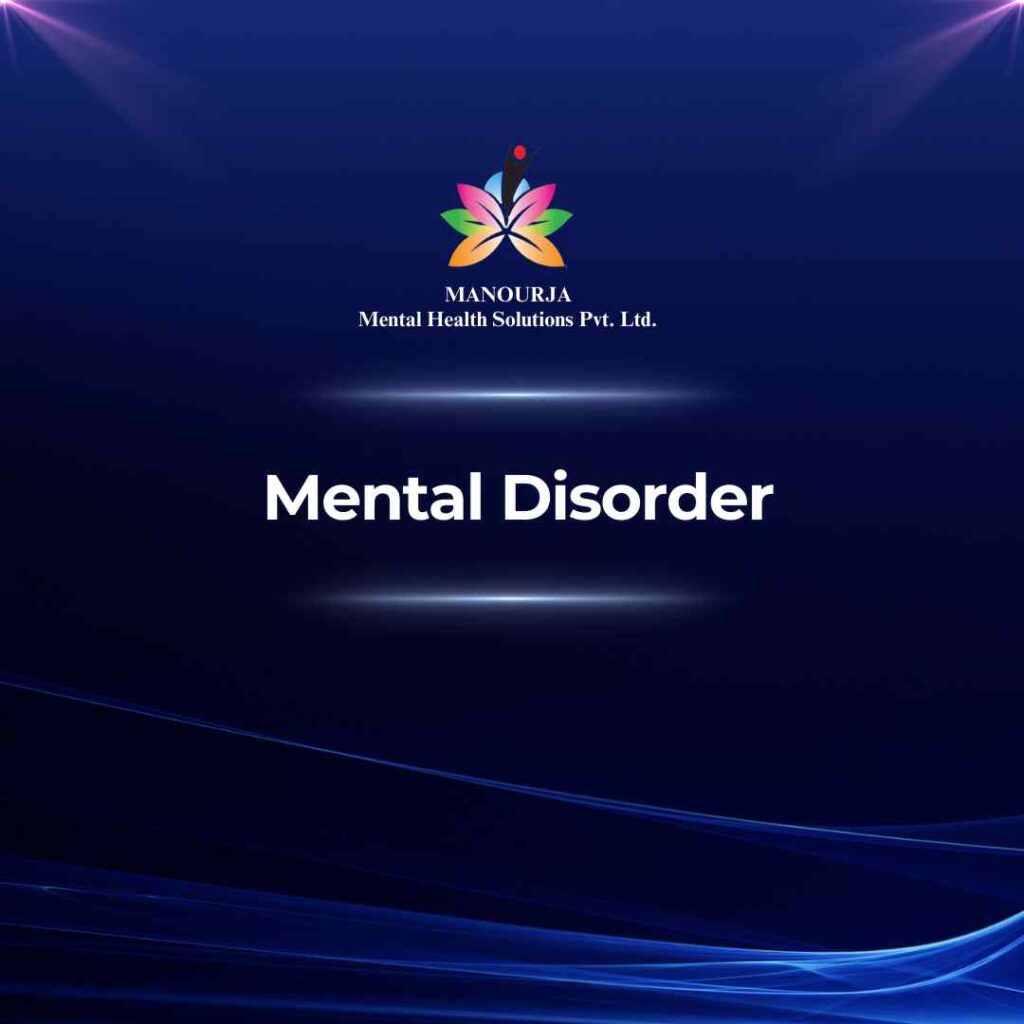Mental Disorders

A mental disorder, also known as a mental illness or psychiatric disorder, refers to conditions that profoundly affect how a person thinks, feels, behaves, or perceives the world around them. These disorders are characterized by disruptions in cognition, emotional regulation, or behavior that cause significant distress or impair a person’s ability to function in daily life.
Signs and Symptoms of Mental Disorders
As signs and symptoms of mental illness, these disorders can manifest in various ways, deviating from typical or healthy mental functioning:
- Distorted Thinking: Examples include holding onto false beliefs (delusions), experiencing sensory perceptions without external stimuli (hallucinations), or having disorganized thoughts.
- Emotional Dysregulation: This involves intense or prolonged emotional states that are disproportionate to the situation, such as extreme sadness (depression) or heightened elation (mania).
- Behavioral Changes: These can range from impulsivity and agitation to withdrawal from social interactions or engaging in risky behaviors.
- Cognitive Impairments: Issues may include memory loss, difficulty concentrating, or confusion that impacts daily functioning.
- Interpersonal Difficulties: Individuals may struggle to maintain relationships due to issues like mistrust, social withdrawal, or erratic behavior.
Mental Illnesses Where Mental Disorders Are Common Symptoms
- Schizophrenia: Hallucinations, delusions, disorganized thinking, and impaired social functioning are hallmark symptoms.
- Bipolar Disorder: Involves alternating between extreme highs (mania) and lows (depression), often accompanied by changes in energy levels and behavior.
- Major Depressive Disorder: Persistent feelings of sadness or loss of interest in activities, along with changes in appetite, sleep patterns, and energy levels.
- Generalized Anxiety Disorder: Excessive worry or anxiety about various aspects of life, often accompanied by physical symptoms like restlessness, fatigue, and difficulty concentrating.
- Obsessive-Compulsive Disorder (OCD): Involves recurring, intrusive thoughts (obsessions) and repetitive behaviors or mental acts (compulsions) aimed at reducing anxiety.
- Post-Traumatic Stress Disorder (PTSD): Develops after exposure to a traumatic event, characterized by symptoms such as intrusive memories, avoidance of triggers, negative mood changes, and hyperarousal.
- Borderline Personality Disorder: Features include unstable relationships, self-image, and emotions, along with impulsive behaviors and intense fear of abandonment.
- Eating Disorders (e.g., Anorexia Nervosa, Bulimia Nervosa): Involve extreme emotions, attitudes, and behaviors related to food and weight, which can severely impact physical health and well-being.
Understanding these mental disorders involves recognizing their varied presentations and how they affect individuals’ lives. Early identification and appropriate treatment are crucial for managing symptoms and improving overall quality of life.
At MANOURJA, we believe in the transformative power of counseling. Our experienced therapists offer a safe and supportive space where you can explore your thoughts, emotions, and challenges. Through personalized counselling sessions, we’ll work together to develop coping strategies, build resilience, and achieve lasting positive change. Discover the path to a healthier, happier you with MANOURJA counselling services.
MANOURJA Rehabilitation Services
At MANOURJA, we’re dedicated to helping you in rebuild your life, after difficult times. Our rehabilitation services focus on understanding what you need to move forward, whether you’re recovering from addiction, trauma, or any psychological – social challenges. We create personalized plans, that are all about helping you, regain your strength and find hope again. With a caring team by your side, you’ll have the support to make real progress and take steps toward a brighter, healthier future.
